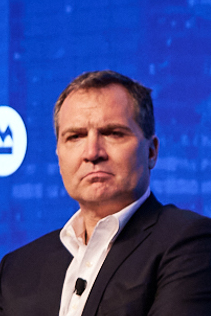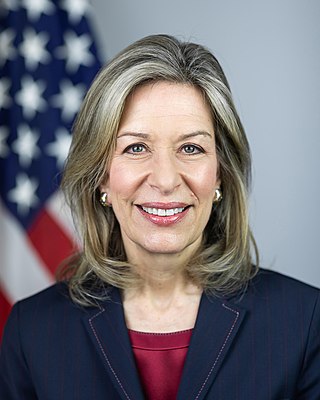
A weapon of mass destruction (WMD) is a biological,chemical,radiological,nuclear,or any other weapon that can kill or significantly harm many people or cause great damage to artificial structures,natural structures,or the biosphere. The scope and usage of the term has evolved and been disputed,often signifying more politically than technically. Originally coined in reference to aerial bombing with chemical explosives during World War II,it has later come to refer to large-scale weaponry of warfare-related technologies,such as biological,chemical,radiological,or nuclear warfare.

As the collapse of the Soviet Union appeared imminent,the United States and their NATO allies grew concerned of the risk of nuclear weapons held in the Soviet republics falling into enemy hands. The Cooperative Threat Reduction (CTR) program was initiated by the Nunn–Lugar Act,which was authored and cosponsored by Sens. Sam Nunn (D-GA) and Richard Lugar (R-IN). According to the CTR website,the purpose of the CTR Program was originally "to secure and dismantle weapons of mass destruction and their associated infrastructure in former Soviet Union states." As the peace dividend grew old,an alternative 2009 explanation of the program was "to secure and dismantle weapons of mass destruction in states of the former Soviet Union and beyond". The CTR program funds have been disbursed since 1997 by the Defense Threat Reduction Agency (DTRA).

Ashton Baldwin Carter was an American government official and academic who served as the 25th United States secretary of defense from February 2015 to January 2017. He later served as director of the Belfer Center for Science &International Affairs at Harvard Kennedy School.

Jon Wolfsthal is an American security analyst currently serving as director of global risk at the Federation of American Scientists.

Robert G. Joseph is a senior scholar at the National Institute for Public Policy. He was the United States Special Envoy for Nuclear Nonproliferation,with ambassadorial rank. Prior to this post,Joseph was the Under Secretary of State for Arms Control and International Security,a position he held until January 24,2007. Joseph is known for being instrumental in creating the Proliferation Security Initiative and as the architect of the Global Initiative to Combat Nuclear Terrorism. He was also the US chief negotiator to Libya in 2003 who convinced the Libyans to give up their WMD programs. He also recently authored a book describing his experience in negotiating with Libya entitled "Countering WMD."

The Bureau of International Security and Nonproliferation (ISN) is a bureau within the United States Department of State responsible for managing a broad range of nonproliferation and counterproliferation functions. The bureau leads U.S. efforts to prevent the spread of weapons of mass destruction,their delivery systems,advanced conventional weapons,and related materials,technologies,and expertise.

Richard A. Falkenrath Jr. served as deputy commissioner of counter-terrorism of the New York City Police Department from 2006 to 2010. He was the third person to hold this position. His predecessors were Frank Libutti and Michael A. Sheehan.
This article deals with activities of the U.S. Central Intelligence Agency,specifically dealing with arms control,weapons of mass destruction (WMD) and weapons proliferation. It attempts to look at the process of tasking and analyzing,rather than the problem itself,other than whether the CIA's efforts match its legal mandate or assists in treaty compliance. In some cases,the details of a country's programs are introduced because they present a problem in analysis. For example,if Country X's policymakers truly believe in certain history that may not actually be factual,an analyst trying to understand Country X's policymakers needs to be able to understand their approach to an issue.

United Nations Security Council resolution 1540 was adopted unanimously on 28 April 2004 regarding the non-proliferation of weapons of mass destruction. The resolution establishes the obligations under Chapter VII of the United Nations Charter for all member states to develop and enforce appropriate legal and regulatory measures against the proliferation of chemical,biological,radiological,and nuclear weapons and their means of delivery,in particular,to prevent the spread of weapons of mass destruction to non-state actors.
The Commission on the Prevention of Weapons of Mass Destruction Proliferation and Terrorism of the United States Congress was set up "to assess,within 180 days,any and all of the nation's activities,initiatives,and programs to prevent weapons of mass destruction proliferation and terrorism." The Graham/Talent WMD Commission was also asked to provide concrete recommendations- a roadmap- to address these threats.

The National Counterproliferation and Biosecurity Center (NCBC) is the primary organization within the United States Intelligence Community for combating the spread of weapons of mass destruction and their delivery systems.

Evelyn Nicolette Farkas is an American national security advisor,author,and foreign policy analyst. She is the current executive director of the McCain Institute,a nonprofit focused on democracy,human rights,and character-driven leadership.
The Global Initiative to Combat Nuclear Terrorism (GICNT) is an international organization consisting of 89 countries that have endorsed a set of nuclear security principles for nuclear terrorism deterrence,prevention,detection,and response. It is co-chaired by the United States and Russia. The organization aims to develop partnership capacity to combat nuclear terrorism,consistent with national legal authorities and obligations as well as relevant international legal frameworks such as the Convention for the Suppression of Acts of Nuclear Terrorism,the Convention on the Physical Protection of Nuclear Material,and United Nations Security Council Resolutions 1373 and 1540.
The Weapons of Mass Destruction Commission (WMDC) is established on an initiative by the late Foreign Minister of Sweden,Anna Lindh,acting on a proposal by then United Nations Under-Secretary-General Jayantha Dhanapala. The Swedish Government invited Hans Blix to set up and chair the Commission. He presented the composition of the Commission to the public on 16 December 2003 and explained what he saw were major tasks for it.

The G7-led Global Partnership Against the Spread of Weapons and Materials of Mass Destruction is an international security initiative announced at the 2002 G8 summit in Kananaskis,Canada,in response to the September 11 attacks. It is the primary multilateral group that coordinates funding and in-kind support to help vulnerable countries around the world combat the spread of weapons and materials of mass destruction (WMDs).

Bonnie Denise Jenkins is an expert on arms control and nonproliferation of weapons of mass destruction and currently serves as the under secretary of state for arms control and international security affairs. During the Obama administration,she was the U.S. Department of State's coordinator for threat reduction programs in the Bureau of International Security and Nonproliferation.
Gift basket diplomacy is an approach to multilateral negotiation aimed at pushing forward progress on a particular issue without the requirement of consensus. The policy is most often seen in United Nations style diplomatic meetings where a particular group of countries wishes to take action or make a joint statement but is unable to do so without the consensus of all parties involved. Gift basket diplomacy fundamentally is collective action agreed by smaller groups of participants that goes beyond the lowest common denominator consensus that larger groups often reach in large multilateral fora. The United States first introduced Gift basket diplomacy in 2011 during the Nuclear Security Summit preparation process and more than 30 countries participated in fourteen Gift basket diplomacy statements at the 2012 Nuclear Security Summit in Seoul.

Elizabeth D. Sherwood-Randall is an American national security and energy leader,public servant,educator,and author currently serving as the 11th United States Homeland Security Advisor to President Joe Biden since 2021. She previously served in the Clinton and Obama Administrations and held appointments at academic institutions and think tanks.
Shawn Gallagher was the National Security Council's Director for Nuclear Threat Reduction in the Obama Administration. Gallagher was a former professional baseball player in the Texas Rangers,Kansas City Royals,and Montreal Expos organizations. A nuclear engineer,Gallagher was the first ever student to graduate from the Massachusetts Institute of Technology (MIT) with two degrees in nuclear engineering within four years.

Laura Susan Hayes Holgate is an American diplomat who has served as the United States ambassador to the United Nations International Organizations in Vienna and to the International Atomic Energy Agency since 2022 and previously from 2016 to 2017.
















